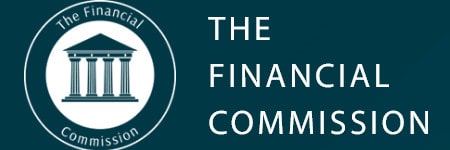The Financial Commission is not a financial or Forex regulator, but it helps to resolve disputes that may arise when traders work with brokers. When you see some Forex broker showing off the Financial Commission membership, you need to understand what it can do and what it doesn't do at all.
 The Financial Commission is an external dispute resolution scheme (EDR) and an independent self-regulatory organization (SRO) for financial trading companies (mostly, Forex brokers). The Financial Commission isn't sanctioned by any country, but its two operating companies are registered in Hong Kong and the United Kingdom.
The Financial Commission is an external dispute resolution scheme (EDR) and an independent self-regulatory organization (SRO) for financial trading companies (mostly, Forex brokers). The Financial Commission isn't sanctioned by any country, but its two operating companies are registered in Hong Kong and the United Kingdom.
What does the Financial Commission do?
The primary objective of the Financial Commission is to provide a fair and transparent external dispute resolution between retail FX traders and member brokers. To this end, the Financial Commission registers Forex brokers who would like to participate. The registered brokers pay annual fees (amount undisclosed).
When a trader encounters some problem with his or her broker that they cannot solve on their own, the trader can file a complaint with the Financial Commission. The Commission then conducts an investigation, makes a decision, and issues necessary orders (compensation or dismissal).
Additionally, the Financial Commission runs a compensation fund of up to €20,000 per trader. The funds can be used to compensate a member's client if the member (a broker) refuses to issue their own compensation based on the Financial Commission's decision.
Certification services
The Financial Commission doesn't stop at third-party dispute resolution. They also provide certification services:
- Order execution certification is certified in partnership with VerifyMyTrade. Such certification helps traders make sure that broker provides best possible execution of their deals.
- Trading technology certification serves to make sure that member companies' technological facilities are on par with the world's top standards in financial trading. The certification process involves the analysis of system security and capacity, instruments and order types, pricing and execution policy, reporting and record keeping, business continuity and disaster recovery plans.
- Collective investment certification helps to ensure that PAMM and copy trading service providers have customers' best interest in mind. This is done by verifying the company's technical setup, funds allocation, calculation, and reporting procedures, security and KYC policies, authorized trader rating methodology.
- Certification of education providers ensures that the educational materials meet the Financial Commission's standards. Although the latter are not publicly disclosed, their questionnaire seems to be focusing on establishing the accuracy and transparency of the educational materials.
How can a Forex broker become a member of the Financial Commission?
To become a member of the Financial Commission, a broker should submit an application form, pay the membership fee (annual fee that can be paid semiannually).
Once a Forex broker becomes a member of the Financial Commission, the decisions of the Dispute Resolution Committees regarding traders' complaints become binding.
The Commission's rules explicitly forbid a member from challenging a DRC decision in courts (unless new evidence becomes available). If a broker refuses to compensate a trader following a successful complaint by the latter, the broker's membership can be revoked.
A member broker should agree to the Financial Commission's right to conduct an annual audit. Among the few requirements currently imposed on members, are the record-keeping and reporting requirements, including a voice risk disclosure requirement.
As of September 2021, 42 brokers are registered members of the Financial Commission.
Examples of the Financial Commission exercising its powers
- On September 14, 2021, the Financial Commission issued a warning against Invest Moment (MOMENTUM INVESTMENT GROUP ENT LTD), an unregulated website that is likely a scam and engaging in defrauding the public, posing as a trading platform.
- On March 31, 2021, the Commission decided in the broker's favor in a complaint case about forcible liquidation of the client's ETH/USD positions. If you look at the description of the case, you will notice that the dispute resolution process is quite transparent with the DRC providing a lot of arguments and evidence to back up their decision.
- On January 28, 2021 the Commission decided in the client's favor on a complaint related to USOIL CFD positions forcibly closed by the broker had readjusted its overnight swap charges.
- On April 1, 2021, the Financial Commission announced that MetaFXGlobal has been expelled and that its membership ceased, citing violations of the Commission's rules and guidelines.
Conclusion
The Financial Commission isn't an industry regulator, despite the fact that some brokers may implicitly insinuate such a thing, and this should be understood by every Forex trader who is researching a company to open an account with. At the same time, a broker's membership in the Commission will ensure at least some level of protection from unfair actions by that broker. Yet one shouldn't forget that the Financial Commission's operations are funded by membership fees, which creates a sort of conflict of interests in the entire scheme even though the dispute resolution process is performed by independent "officers".
It is also necessary to keep in mind that the Commission may use its "absolute and an unrestricted right to deny" your complaint.
If you want to share your opinion, observations, conclusions, or to ask a question regarding the Financial Commission, feel free to start a discussion on our Forex forum.